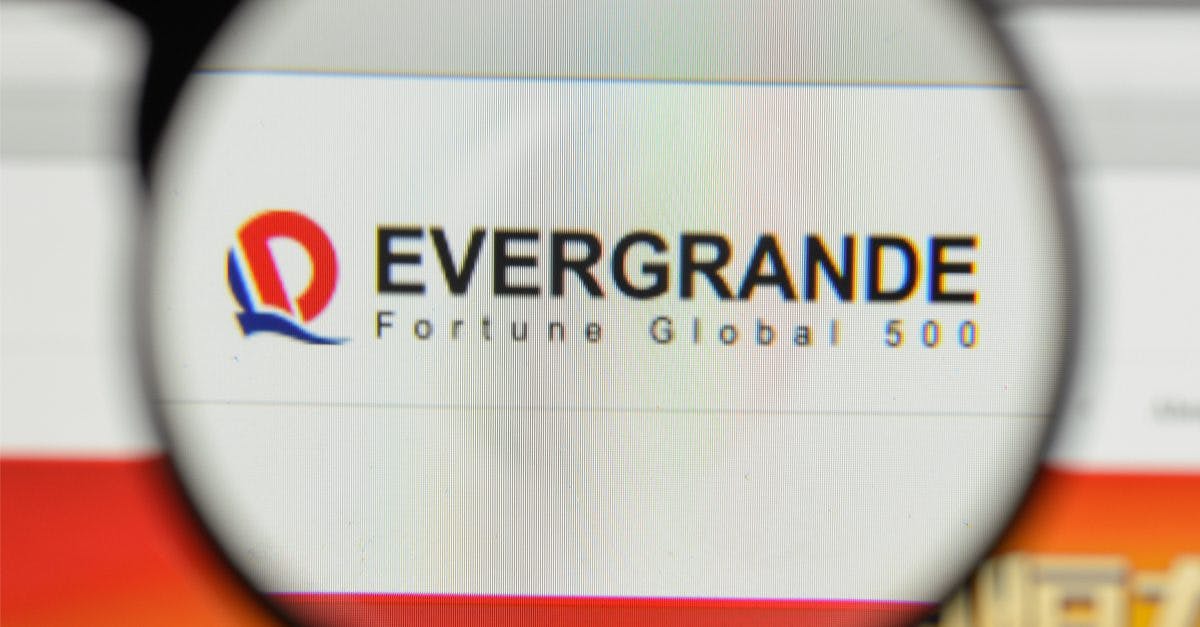Evergrande Is Suspending Trades Friday, Here’s What That Means
Evergrande, which has been cash-strapped for months, is sitting on about $300 billion in debt, making it the most indebted developer in the world.

- China Evergrande Group is sitting on approximately $300 billion in debt
- The company is set to miss one principal payment and is still considering the possibility of an extension
Hengda Real Estate Group Co Ltd, the parent company of China Evergrande Group, applied on Thursday to suspend trading of onshore corporate bonds. Historically, this move is likely to be followed by a restructuring or default.
Chinese authorities alerted Evergrande’s major lenders that the property developer giant may default on interest payments due September 20, Bloomberg reported Wednesday.
Evergrande, which has been cash-strapped for months, is sitting on about $300 billion in debt, making it the most indebted developer in the world. Shares of Evergrande closed at $0.36 Thursday.
Evergrande is set to miss one principal payment and is still considering the possibility of an extension, unnamed sources told Bloomberg.
The situation has led to intensifying protests across China as investors, homeowners and buyers are left with unpaid debts and unfinished properties.
“The big question now is what will happen next?,” said Steve Van Metre, founder of Steve Van Metre Financial. “Is there a big selling event, is it a non-event or is this really a pause because China, through any number of their abilities, will come in and say ‘okay, we’ll start backstopping and we will buy them up.’”
It is unclear, as Van Metre points out, whether or not there will be a Chinese bailout if Evergrande does, in fact, default.
The developer’s debt rating has been falling steadily. In fact, a September 8 Fitch report showed that an Evergrande default is likely.
Not the beginning
This is not the beginning of the developer’s cash issues.
In August 2020, Evergrande reportedly informed the government that payments due in January 2021 could cause a liquidity crunch. This was revealed in a letter leaked on social media in September and caused a major drop in share prices. Evergrande denied the letter’s legitimacy and investors shortly after waived their right to force the $13 billion payment that was due, providing temporary relief.
Since August, Evergrande has earned $8 billion from selling shares.
Investor reaction
Investor reaction to the crisis is a key area to watch, Van Metre said.
“Are investors going to sell the stock? So far, we’ve seen yes. Are they going to sell the bonds? So far, yes,” he said. “And so what does that mean in terms of the broad property market in China?”
Potential property buyers and homebuyers are not going to be inclined to build with Evergrande and may pull out of ongoing deals, which will lead to contagious effects on the broader housing market in China, Van Metre said.
However, when Evergrande attempts to sell current properties in order to boost liquidity, they are likely not going to receive top offers given their current, publicly known financial position.
It’s bigger than people think,” said Greg Foss executive director of strategic initiatives at Validus Power Corp. “The question is how much liquidity is in the system to deal with something like this because, again, an event like this does not cause contagion unless people start redeeming assets and unwinding leverage.”
The broader market implications will play out in coming days as shareholders and property owners start to react. If the loans are defaulted, fears of broader contagion are likely to increase.
Are you a UK or EU reader that can’t get enough investor-focused content on digital assets?Join us in London on November 15th and 16th for the Digital Asset Summit (DAS) London. Use code ARTICLE for £75 off your ticket. Buy it now.






